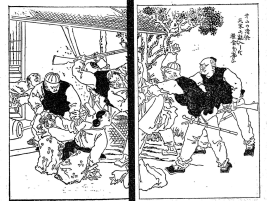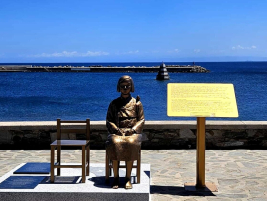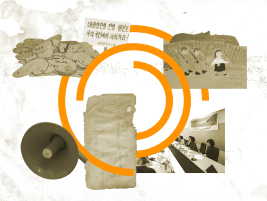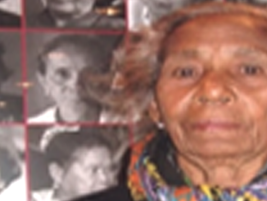Reviews
-

- “Comfort Girls”: The Forgotten Tragedy of Child Exploitation
-
The “Comfort Women” system was not only a violation of women’s rights, but also a grave infringement of children’s rights. In this article, Professor Ñusta Carranza Ko examines how imperial Japanese authorities systematically violated the rights of underage girls, in direct contravention of international conventions of the time, reframing the issue as a case of child rights violations.
-

- Encountering Palestinian Women Who Stand Tall Amid Daily Crisis and Violence
-
Palestinian women who endure and resist occupation, oppression, and patriarchal structures, steadfastly continue life for the next generation.
-

- History of Japanese Military “Comfort Stations” Dates Back 130 Years
-
Japan’s state-level responsibility for the “comfort women” issue in the context of the country’s history of licensed prostitution system
-
- Characteristics of the Issue of Japanese Military Sexual Slavery in Singapore
-
Until 2022, when the book The Comfort Women of Singapore in History and Memory was published, it was widely thought in Singapore that there were no Singaporean "Comfort Women" who were sexually enslaved by the Japanese military.
-

- The Statue of Peace Arrives in Stintino, Italy, Carrying a Message of Human Rights and Peace
-
A story of Stintino’s commitment to justice and humanity, its focus on raising awareness and finding solutions to end violence against women, and the arrival of the Statue of Peace in the town.
-

- “Voices of ‘Comfort Women’” as History in Progress
-
In 2022, as a result of Japan’s aggressive diplomacy, UNESCO’s MoW inscription rules were revised to require all documents to be submitted through national governments. Additionally, if a concerned country objects, the application is halted from entering the review process and must instead undergo a so-called “dialogue” procedure. Under these revised rules, any attempt by a victimized country to submit documents related to the Japanese Military “Comfort Women” is likely to be blocked before even reaching the review stage due to Japan’s opposition.
-

- The Unique and Irreplaceable “Voices of ‘Comfort Women’”
-
The history of the Japanese Military “Comfort Women” issue has challenged long-standing conservative cultural norms regarding women and sexuality in Asia by amplifying the voices of the victims. Moreover, it has contributed to the establishment of globally significant norms and values related to women’s human rights. This means that the records documenting the Japanese Military “Comfort Women” issue and related activities meet the criteria of “world significance.”
-

- Voices of “Comfort Women”: A Global Civic Movement for Memory
-
The suffering of the Japanese Military “Comfort Women,” one of the most tragic human rights abuses of the 20th century, should be preserved and managed as historical documentary heritage. This is crucial to prevent such atrocities from recurring and provide a lesson to future generations.
-

- Uncovering the Tragic Legacy: Movement for the Victims of Japanese Military Sexual Slavery in Timor-Leste
-
As of now, one victim of these atrocities remains alive in Timor-Leste. While the passage of time may have dimmed the memories of these atrocities, the quest for justice and accountability remains as relevant as ever.
-

- “Rape and Gender Violence are part of TRC’s Unfinished Business”: South Africa’s Ongoing Quest for Gender Justice (2)
-
Clearly, liberal democratic initiatives such as the enshrinement of women's rights will continue to fail until structural inequalities, as well as the social norms that allow gender-based violence, are confronted